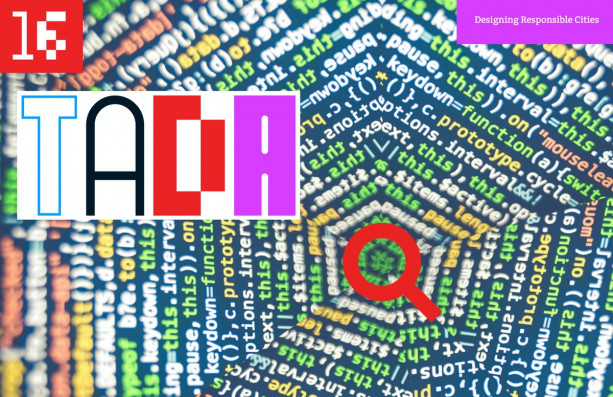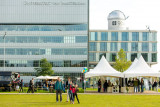Smart building inside and out

Day and night, 114 sensors are collecting data about the use and occupation of the facilities at H20 Esports Campus in Purmerend. Such data can be of great interest to plan work more efficiently and cost effectively. Partners of AMdEX, an Amsterdam Economic Board initiative make sure data is exchanged between trusted parties only. And that any conditions for access and use are enforced.
How many people go in and out a building throughout the day? Do they prefer specific elevators? Which toilet areas are most used? Are bins and soap dispensers full? Facility managers and cleaning companies love that type of information. Unoccupied areas do not need to be serviced as frequently as busy ones. The Esports Campus, an event location for businesses and private parties, was keen to share the sensor data in a safe and trustworthy manner. The entrepreneur reached out to the team of our AMdEX initiative, via the Data Sharing Coalition.
Ready for it
For AMdEX, the request from Esports Campus came at exactly the right time. Previously, the field lab at the Marineterrein in Amsterdam proved how environmental and liveability data can be accessed and shared in a trusted environment – after the data owner and data user had agreed on simple terms. “We were ready for a more complicated case,” says Hayo Schreijer (Dexes), one of the founding partners of AMdEX. “The case at Esports Campus is a mix of private and public data, collected in a private space and to be shared over the Internet. Also, a lot more parties would be involved than in the previous Marineterrein case.”
Endorsing partner KPN
KPN is AMdEX’ endorsing partner for connectivity and network infrastructure. KPN’s infrastructure could enable this innovative entrepreneur to collect and share this data reliably with his business partners. Carolien Nijhuis is EVP Internet of Things and Dataservices at KPN. She says: “This smart building project is next level complexity. It combines all the issues we think are important. Safe and trusted exchange of data is necessary to solve the bigger issues in our society. In this project, KPN provides interoperability and connectivity according to European standards of privacy and security.” It is tempting to think that data exchange is all about technology. It is not. “Besides being innovative, using professional technology, data exchange is very much about legal and organisational issues”, says Schreijer.
New terms and conditions
The Esports Campus pilot ran in parallel with a next phase of the field lab at the Marineterrein. Tom van Arman (Tapp), says: “At Marineterrein we measure environmental factors and occupancy of the public space: water quality, temperature, numbers of people. Esports is a private space that collects more personal and commercially sensitive data. We had to consider new terms and conditions in the agreements with all parties involved. We also included the principles of the Tada Manifesto, that prescribe safe, inclusive sharing and usage of data.” Collecting data inside a building results in whole new datasets to play with.
Prototype for all-in-one app
This summer, a milestone was reached: a prototype of Facility Apps, the all-in-one app solution for cleaning and facility management. Data from the Esports Campus is made available to the cleaning partners through this app, allowing them to plan the work more efficiently. The data in the app is contained in a ‘Solid Pod’, a decentralised data store. When data is stored in someone’s Pod, they control which people and applications can access it. The AMdEX layer verifies the identity of parties that want to access the data and authorises them to do so – if they are certified parties. Schreijer clarifies that AMdEX does not ‘see’ the data. It tells systems whether access or usage of data is allowed and makes these decisions auditable. Nijhuis also emphasises that KPN enables the technical data exchange and has no access to the actual data. The next step is to evaluate the app with the users.
Great potential for smart cities
This pilot has shown that private data can be shared reliably between private partners. Combined with the results from the public space of Marineterrein, all three partners see great potential for smart city applications. City planning based on actual data, more efficient energy management of buildings or even industrial areas, innovation in sustainable logistics. “Especially when we all work together,” concludes Nijhuis. “If you run alone, you go faster, but together you go farther.”
Text: Karina Meerman






